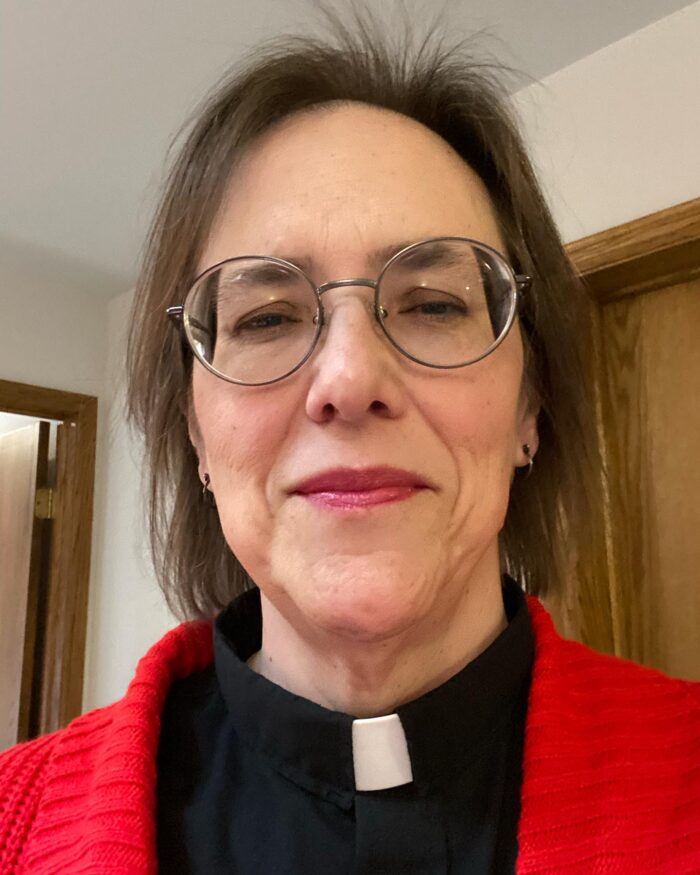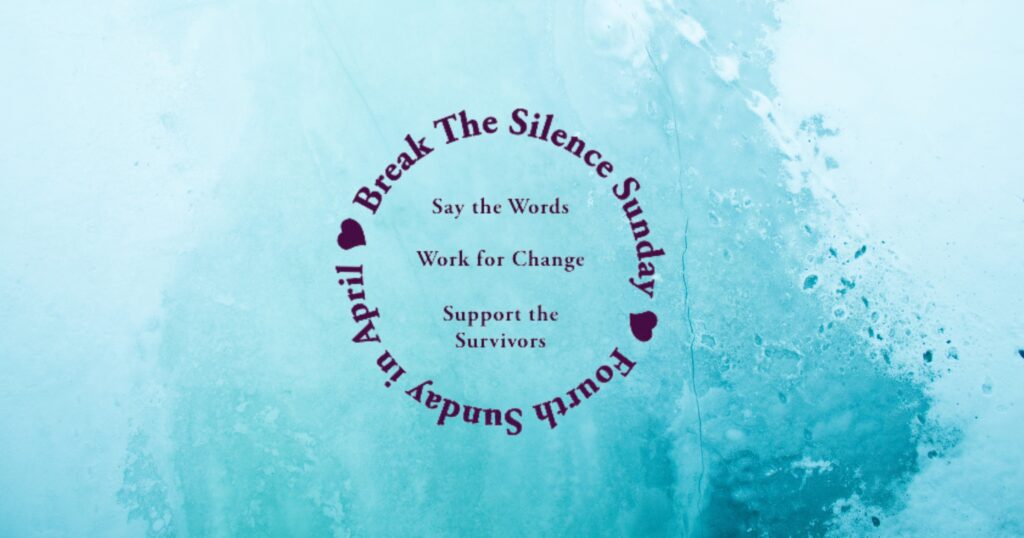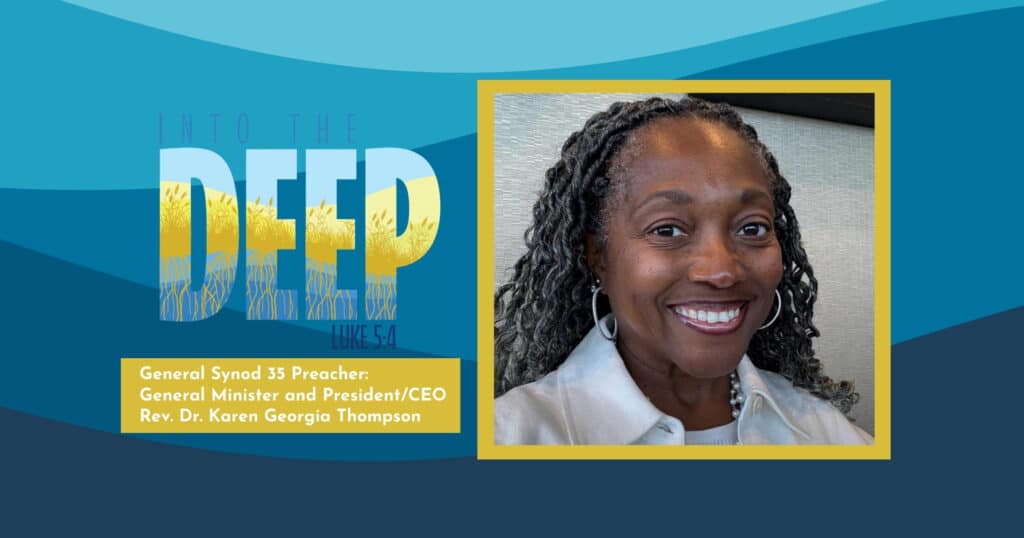April 28 is Break the Silence Sunday: Congregations join in supporting survivors of sexual assault
This news piece features discussion of sexual assault.
When the Rev. Moira Finley set up the Break the Silence Sunday exhibit at last summer’s 34th General Synod, the pastor wasn’t expecting what was to come: an outpouring of stories from those who have experienced sexual violence.
By the time Synod ended, Finley, an advocate for survivors of sexual assault and rape, particularly in church and faith communities, listened to 134 survivor stories — and they continue to come.
“The stories have doubled,” said Finley, who is now hearing at least four stories weekly from strangers discovering the Break the Silence website and its resources.
This Sunday, April 28, the United Church of Christ will observe Break the Silence Sunday in support of survivors of rape and sexual violence.
Break the Silence Sunday came to fruition from a 2019 General Synod Resolution supporting survivors of rape and sexual violence with care, education, and commitment to discuss openly the impacts of sexual violence. It is an effort to open up a conversation within the church about rape and sexual assault.
Finley hopes it will be a Sunday in which more congregations will provide a safe place for these stories to come out from the silence.
“Survivors have big faith questions. Yet many times when I ask survivors if they talked to their pastor, the answer is often ‘no,’” said Finley.
Rachael Ward, minister & team leader for Gender & Sexuality Ministries, encourages that “participating in Break the Silence Sunday provides a step forward or continued step within your congregation to remain in support of survivors or renew your commitment in what resources your church may be able to provide to your local community.”
Prayer to ‘break the silence’
Finley, a Wisconsin pastor, who serves Trinity United Church of Christ in rural Shioctin and St. John’s United Church of Christ in Cecil, founded Break the Silence Sunday to educate faith communities in supporting survivors of sexual violence with a plethora of resources including prayers, liturgies, and videos. The prayers are sometimes hard to read, Finley warned, and often point to the startling sexual violence statistic in the U.S.

In Finley’s prayer, “Every 68 Seconds,” congregations are reminded that every 68 seconds someone in the country is sexually assaulted. Ward recommends that congregations uplift this reality by incorporating the prayer into a Break the Silence Sunday worship service or community prayer offering.
In another prayer, “To the Survivors Among Us,” she reminds listeners over 63% of sexual assaults go unreported.
“It is overwhelming,” said Finley, advising congregations to start with small steps, remembering that they don’t have to get it all right either. “Just take a step,” she added.
Making a commitment
One small yet important step congregations can take is for their clergy to commit to offering a safe and supporting environment for survivors.
“The Break the Silence Sunday clergy commitment is a statement that clergy can use to make it clear that they are working towards being a person who can be trusted with survivor stories, who will not meet those stories with judgement and abusive theologies, but with openness and the welcoming love of God,” said Finley.
The statement, Finley said, can be posted outside a pastor’s office, on social media, in newsletters and in all the church bathrooms, as sexual violence transcends all gender identifications.
“We were taught in seminary to refer people to the right outlets when they need counseling. Yes, we do need to do that, but in doing so we pass a lot of people off when we could be their companion. Clergy can make the commitment to say to a survivor, ‘I will accompany you.’ When you have those questions, ‘Where was God?’ I will be there for you,” said Finley.
The ministry of presence is important to the healing of sexual violence and it is why Ward encourages congregations to participate in Break the Silence Sunday as “sexual violence impacts the mind, body and spirit of survivors.”
“Invisible markers of sexual violence can remain with survivors far longer than the memory of communities who surrounded them in their initial care. It is critical that the church continues to uplift the reality of what survivors of sexual violence experience and respond proactively with resources for survivors and their impacted families,” said Ward.
While there are no new resources specifically for this year’s Break the Silence Sunday, Finley encourages participants to use the extensive library of resources from past years. A prayerful pause, said Finley, was needed with the Break the Silence Sunday’s growing presence.
“It’s been a lot for a lot of people who curate Break the Silence Sunday. It is a season to let the fields lay fallow and to take a breath,” said Finley.
“We hope that your congregation or faith community will embody the call to support survivors by making visible what often is attempted to be made invisible,” said Ward. “For Break the Silence Sunday, let us prophetically share from the pulpit and our community settings that we believe survivors, and we will offer love and comfort onward.”
To learn more about Break the Silence Sunday, visit the BTSS website.
Donna Jackson is a communications specialist with the United Church of Christ.
Content on ucc.org is copyrighted by the National Setting of the United Church of Christ and may be only shared according to the guidelines outlined here.
Related News
2025 Climate Hope Art Contest award winners plant seeds of hope
The celebration of the 2025 Climate Hope Art Contest for children and youth of the United...
Read More‘Not your typical webinar’: Womxn 2 Womxn series aims to foster community
As the church works towards gathering this summer at General Synod 35 in Kansas City,...
Read MoreThompson to bring a ‘prophetic and pastoral’ message to Synod: ‘We are not all the same, but still one body’
On Sunday, July 13, the Rev. Dr. Karen Georgia Thompson will take the stage at the 35th...
Read More



